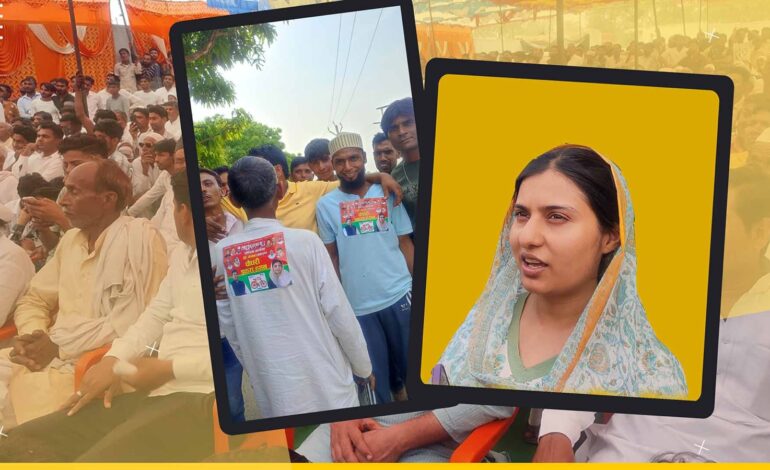
Western Uttar Pradesh is like the wild west and people here know it. “You can do what you like elsewhere, it won’t work here, this is WESTERN Uttar Prades, Pachchim Uttar Pardes” said a young man, jocularly, but also in earnest.
When coyote-style dialogues are the order of the day, rapper Sidhu Moose Wala’s songs exhorting people to pick up AK 47s in constant play, you expect the politics to be testosterone, testosterone, and more testosterone. That’s how Kairana has entered the modern Indian political imagination. It was the springboard of polarisation in previous elections, with BJP leader Hukum Singh spreading a false rumour that Muslims in Kairana were fanatical and forcing Hindus to leave in large numbers.

‘Hindu khatrey me hai,’ – ‘Hindus are at danger’ is the BJP war cry that this Lok Sabha seat has amplified to great effect, when Prime Minister Modi was on the cusp of winning his first election. The Muzaffarnagar-Shamli riots of September 2013 covered much of this Kairana Lok Sabha seat and was sparked by a Muslim boy Shahnawaz being killed and then two Hindu boys from the Jat community being killed in return. The communal flare up grew into a clarion call across Uttar Pradesh to Hindus from diverse and rival castes to come together against a common enemy – the Muslim. It turned out to be the perfect storm that helped our Prime Minister become PM Modi.
Kairana has flexed its political muscles ever since. Male muscles, as a rule. Indeed, women such as Gayatri Devi, Anuradha Choudhary and Tabassum Khan have been elected Lok Sabha members from here since 1962, the year the constituency came into being. Altogether, 15 Lok Sabha polls have taken place in this period.
Social and political discourse is, by and large, around men telling men what to think and do, Hindu men telling Hindu men what to do. Women mostly complying since the Hindu women wear ghunghats or cover their heads almost up to their navels and stay indoors, mostly bent over clay over chulhas making rotis by hand, getting singed in the process. Muslim women do the same, wearing burqas instead of ghunghats….
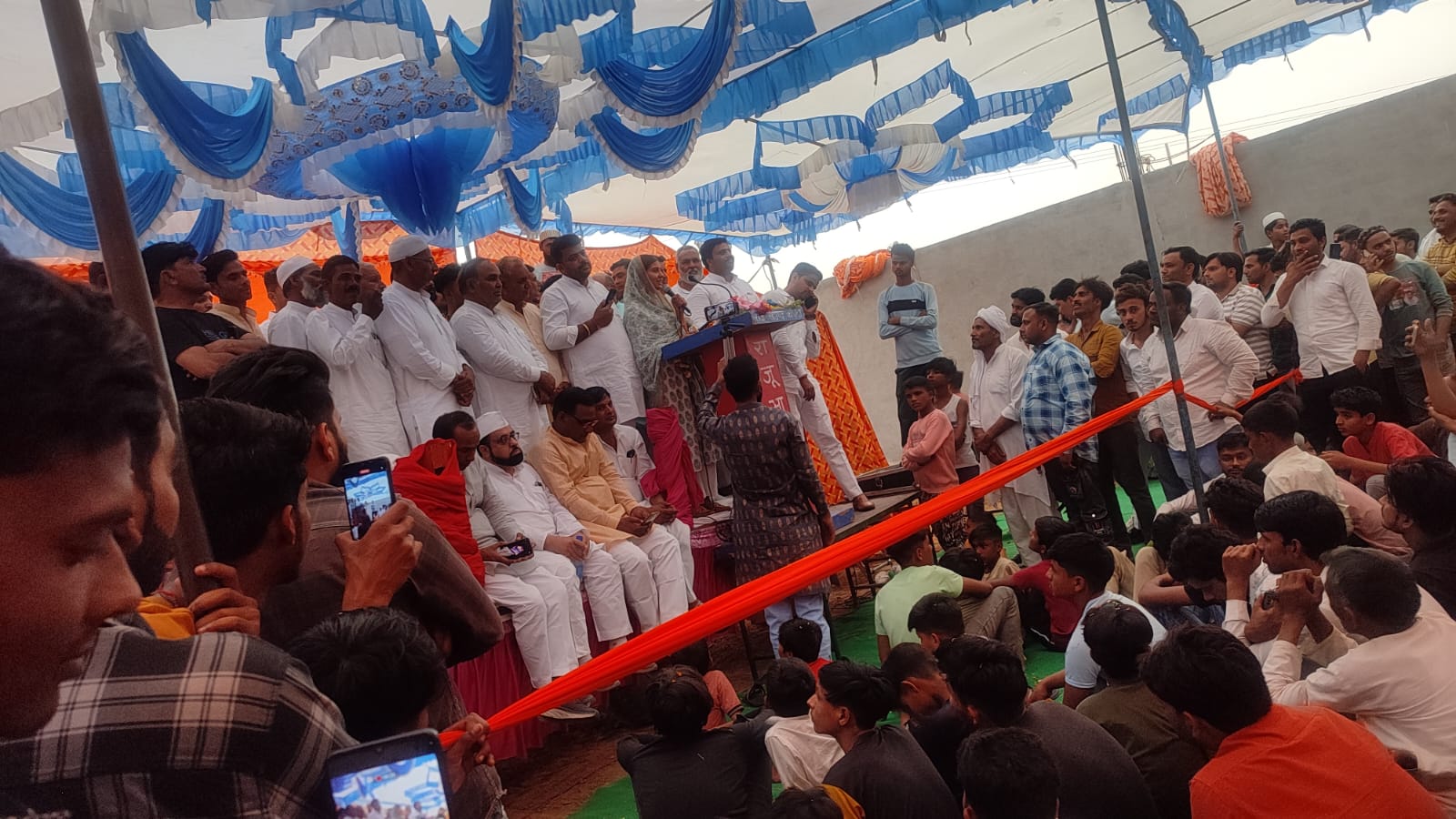
It is in such a region that a young woman is making a significant impact as a candidate. Not an aggressive, hands-on-hip woman but a mild-mannered, deferential 29-year-old and a Muslim woman at that. But Kairana is a funny sort of place. It wears a mocking stance that defies rationale, defies logic and just when you think you’ve got it all nailed down to a saffron-clad conformity, it confounds you.
29-year-old Iqra Hasan is an accidental subversive. Fate decided to bring her back from London after she finished an MA in politics and law at the School of Oriental and African Studies. Fate and COVID that is. While she was back in Kairana with her family, signed up to return to London for a PhD, her brother Nahid, who had fought and won two successive assembly elections, was arrested, just before he could win a third election. Nahid was indeed an anti-BJP leader, moulded very much like most other musclemen politicians of the region.
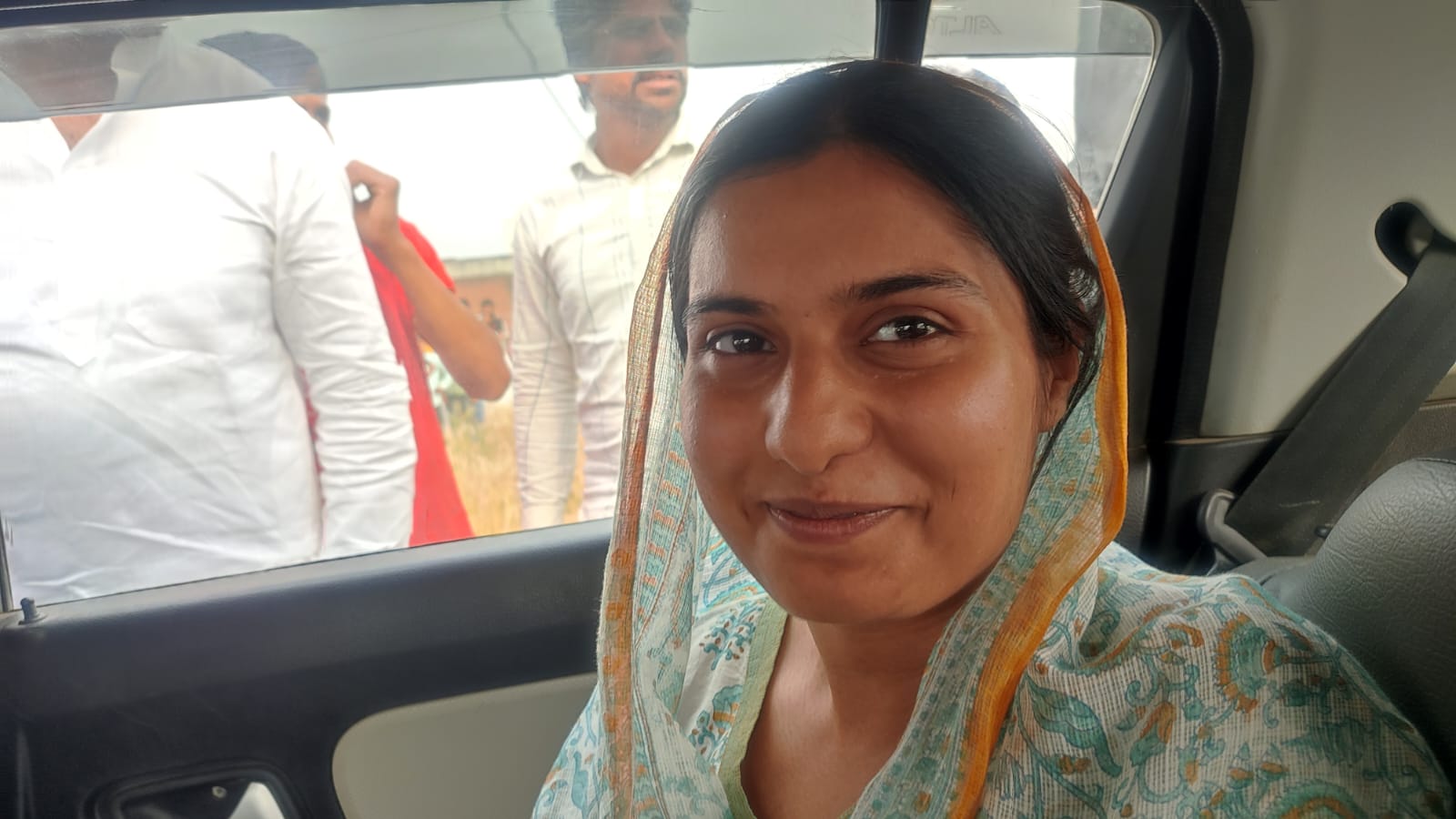
You could say Iqra was moulded into politics at birth, like her brother. Iqra comes from a feudal, political family, with generations of landed wealth and privilege behind her, from one of the politically dominant castes in the region – the (Muslim) Gujjars. Both her parents have been MPs. Her mother, Tabassum Khan, contested on a BSP ticket in 2019 and lost to the BJP’s Pradeep Choudhury, by 90,000 votes. So it was almost automatic for her to step in to help her brother, when he was arrested.
In the moment of her brother’s arrest in 2022, something else seemed to kick in that isn’t entirely definable by blood and soil. Iqra’s brother Nahid was now in jail and Iqra was LONDON RETURNED. No feet on the ground. She was a Muslim woman in a part of the world that had just vilified Muslims as COVID spreaders. The region had banned Muslim fruit sellers from entering neighbourhoods in the pandemic. “They put stickers on apples by sticking them with their spit and that’s how COVID spreads,” good Hindus were saying as they prevented Muslims from coming to their door.
Here was this Muslim woman, just after the pandemic, going door to door. And she wasn’t even asking for votes for herself, but for her jailed brother, charged with attempt to murder, hooliganism and many other criminal charges. Indeed, many Hindus of the region feel that this is what most Muslim men do.
Was it something in her face, an earnestness? Was it her voice, not hysterical like all the TV anchors and WhatsApps per second? It wasn’t entirely clear but Iqra won her brother the seat by a margin of 25,000 votes. From then on, it seemed that she was going to be the opposition’s candidate of choice in the 2024 Lok Sabha. On a Samajwadi Party (SP) ticket.
But in this season, all across Uttar Pradesh, there is hardly any noise in any constituency by the opposition parties. The silence of the opposition is deafening when squared with the massive drive of Hindutva forces and BJP allies, in favour of the building of the Ram temple in Ayodhya. In January this year, RSS and Hindu affiliates went to every house in evry village to hand out saffron rice and pictures of Ram, turning the inauguration of the Ram temple into a test of loyalty to the nation. Across Uttar Pradesh, saffron buntings lined shops and streets and the whole Hindu horizon. The effect was to practically nullify any conversation about the election. What is there to talk about when there isn’t anything to be seen or heard on the other side?
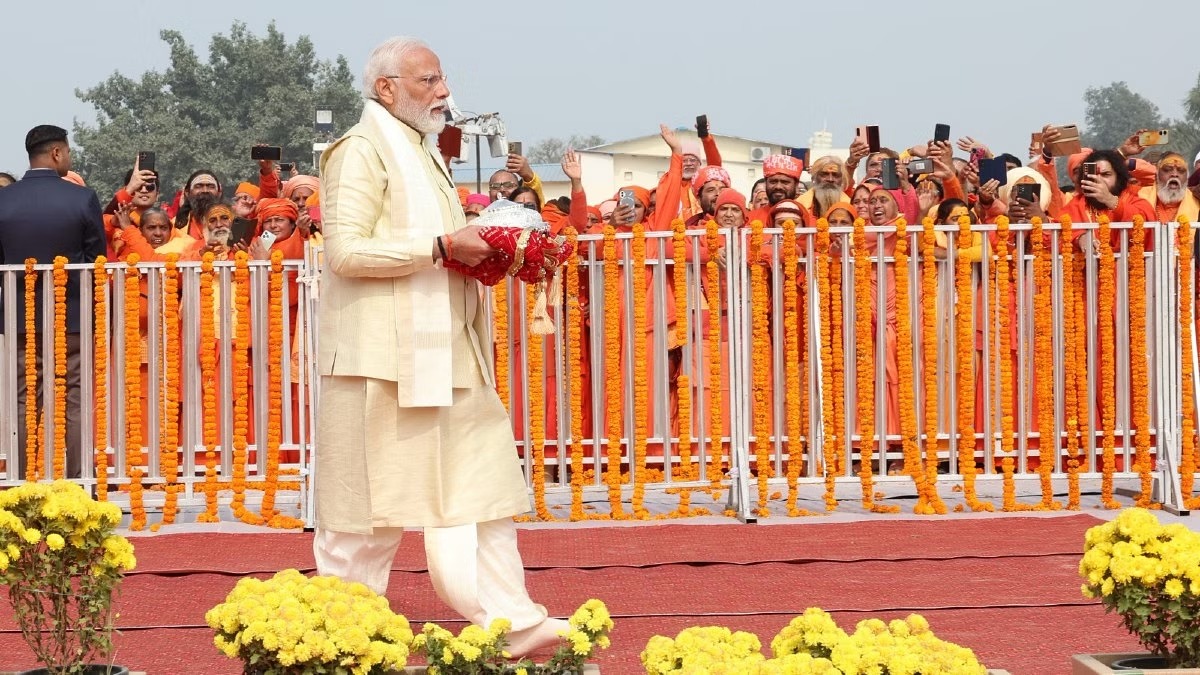
It’s hard for anyone to cut into this big picture and display how an individual might matter. The ruling BJP fielded the same candidate who defeated Iqra’s mother in the last election. Five years ago, this man – Pradeep Choudhury seemed to have achieved the impossible, by getting the votes of some OBC Muslims, like the gardener Shadaab (name changed) from the Ansari caste. Shadaab wasn’t swayed by the candidate as much he was by Modi. Such is the pull of Modi in these parts that Shadaab also voted against Iqra’s brother in the assembly elections, and stuck loyally to the BJP, saying he liked the fact that the party took goondas to task, even if they were Muslims.
This time, Shadaab said, his entire village – Malakpur, was rooting for Iqra. “If her brother or mother was contesting, I’d still go for the BJP. But she is different,” he explained, his large kohl-lined eyes shining brightly. “She empathizes with the poor.”
Shadaab’s words were echoed strangely enough by young Manoj Saini (name changed) from Rashidgarh. Manoj is a card-carrying member of the BJP and its more militant muscle-flexing arm – the Bajrang Dal. “This time, I don’t want to vote for that man – Pradeep Choudhury. He is inaccessible. I like Iqra. I love Modi but I like Iqra,” he said. If this doesn’t make sense that is because in Kairana, logic never has much currency. Pride and ego count for more. If your pride is hurt, you’re not likely to forget or forgive.
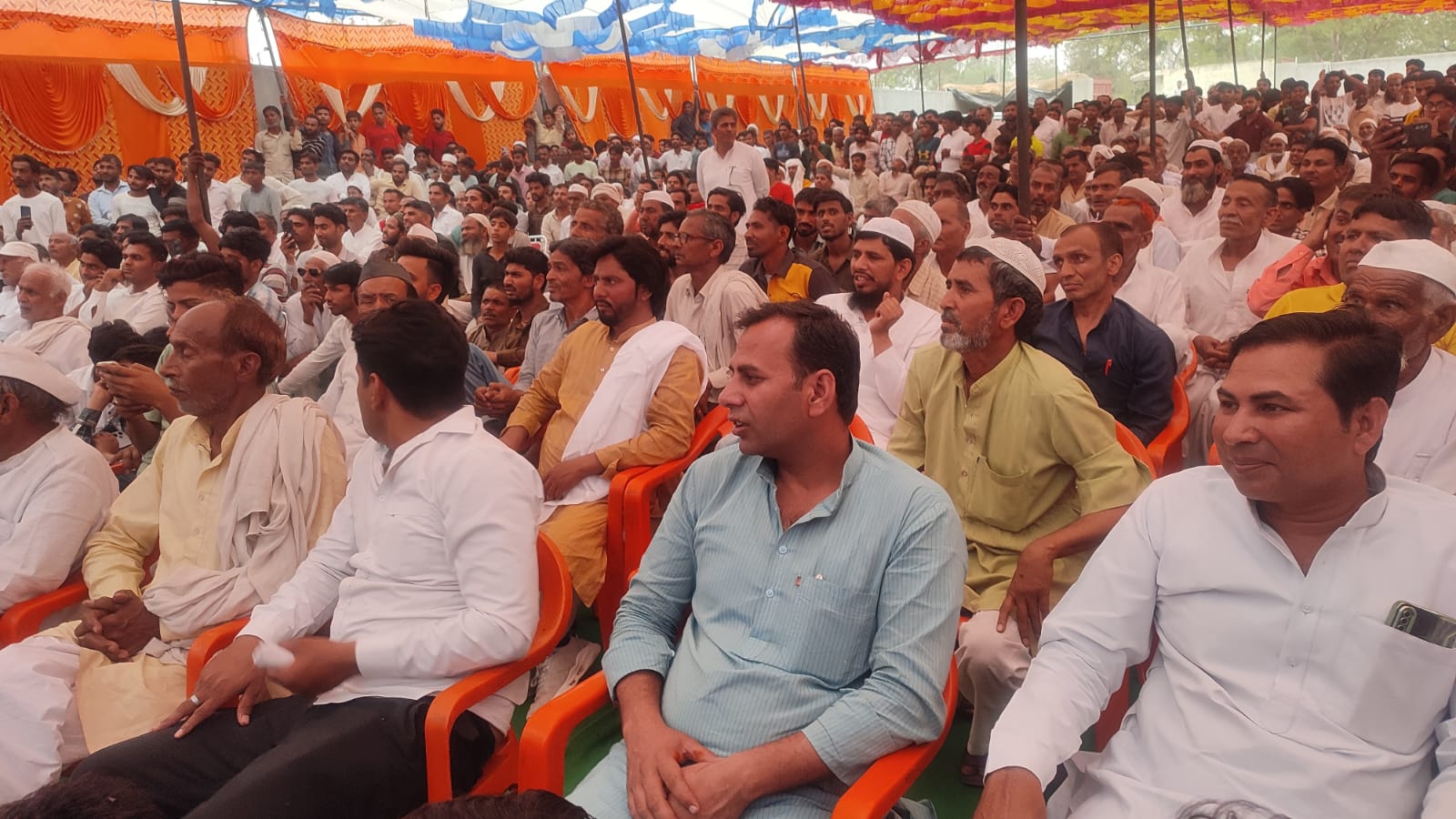
At the election rally in support of Iqra, a crowd was gathering. All of them were men because the women don’t step out in public. On the stage, a bevy of village headmen – sarpanches gathered, some not so subtly scratching their crotches under their dhotis. All of these sarpanches declared in the village Ghasipura, to a two-thousand strong all-male crowd, that they were BJP supporters until now. But they had absolutely had it with Pradeep Choudhury. He was a Gujjar who had let Gujjars down, they concluded. Iqra on the other hand, was a Gujjar who listened. And seemed to care. “This time,” they said, “we want all of you to throw your support behind Iqra.” The all-male crowd listened to the men on stage and clapped in unison. Sarpanch after sarpanch took the stage and repeated what the one before had said, each with their own particular touch of machismo. The only woman in the tented event was Iqra. And this reporter.
Away from the event and en route to the next, Iqra had some time to talk. “Another journalist pointed out to me that the way I cover my head is secular, so it appeals to both Hindus and Muslims. I don’t do the full purdah, I just cover my head the way many Hindu women do as well. And on my campaign I make sure I first go and meet women, in their homes, because no one else does and I relate to women better.”
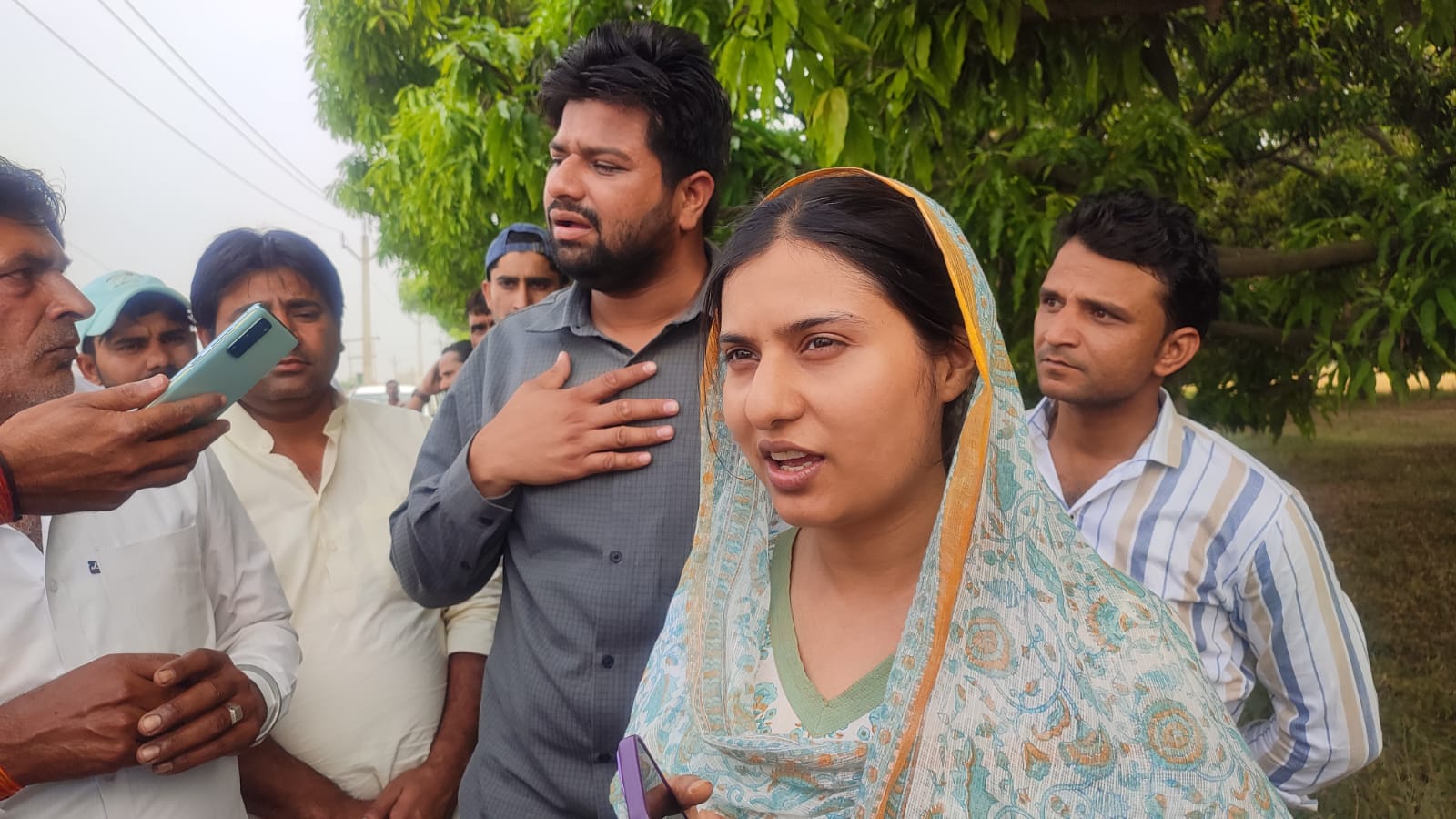
It’s these small things that can go unnoticed in a big, fat, everything-is-about-Modi campaign. That women care more about whether you’ve sat down some place, in their homes, and listened to them. Not stormed into a village clearing, chest-first and made a declaration like a man. This apparently has come to matter.
And when it comes to the men, they also want to be heard. At Iqra’s election rally, there were many non-Gujjar male sarpanches also throwing their weight into a collective boycott of Pradeep Choudhury and in her favour. Upper caste Brahmins, scheduled caste Valmikis and of course Muslims from various castes. So Iqra displayed the emotional dexterity that often takes candidates many elections to acquire. She chose not to be strident, not to rub the patriarchs’ noses in the fact that they were going to take orders from a young woman if she becomes MP. “You don’t have to declare your feminism in a campaign,” she said, smiling as her car window was pounded by a gaggle of kids from the outside. “My mother and brother both say they are scared of me,” she added. “But I don’t have to display that side to the public. It is a performance.” By performance she did not mean ‘an act,’ or some sort of deceit. She meant being able to underline her presence as a daughter and a sister, a universal child-woman that men like because they feel comfortable in her presence and not overruled. Since they’re not threatened, they also take on board her acumen and degrees. One of Iqra’s supporters standing at the podium with her said, “We have faith in her ability to govern, she has a prestigious law degree from London to show for it.”
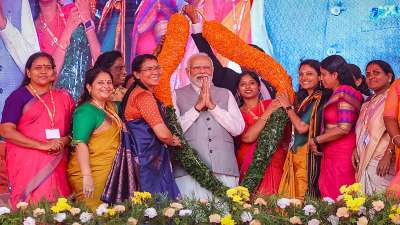
If Modi fans are running campaign videos in his name, saying he is ordained from the heavens to govern once more, Iqra says she feels that as a shy, self-effacing woman, she too, sees God’s gentle hand at work in her stepping into the arena. She isn’t asking people to dislike Modi but she’s saying very gently – this time, vote for change. “Like the older, wiser people always say, even water, when it stays stagnant for too long, becomes foul, in the same way, once in five years, we have the opportunity to change things and we must use it.” It’s a matter-of-fact, unremarkable, prosaic appeal. An individual’s game. Quietly secular, quietly subversive. Exactly the way women in Kairana who want to change men’s minds about most anything, need to be. Cover your head, say `yes,’ and then get the men to do exactly what you want. Whatever the outcome, the existence of this competition in a seemingly one-direction contest is remarkable. A story of individual democratic assertion that we, the electorate, would do well to keep alive within us.


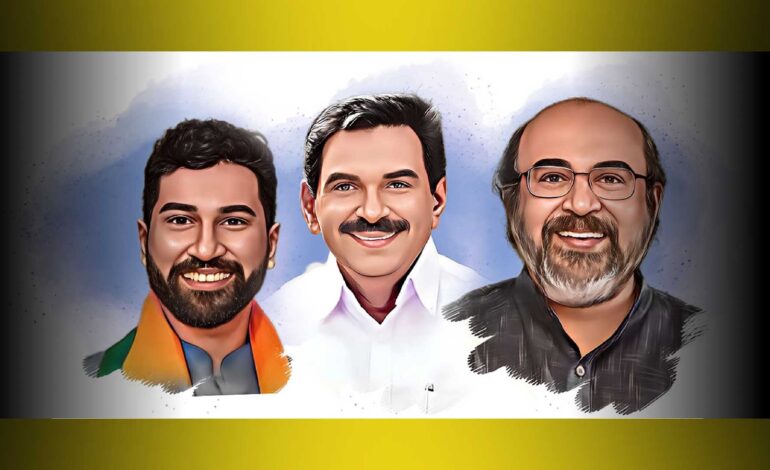
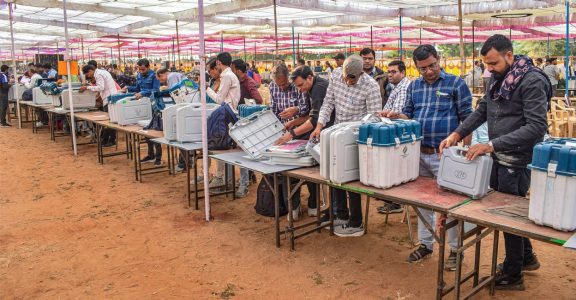

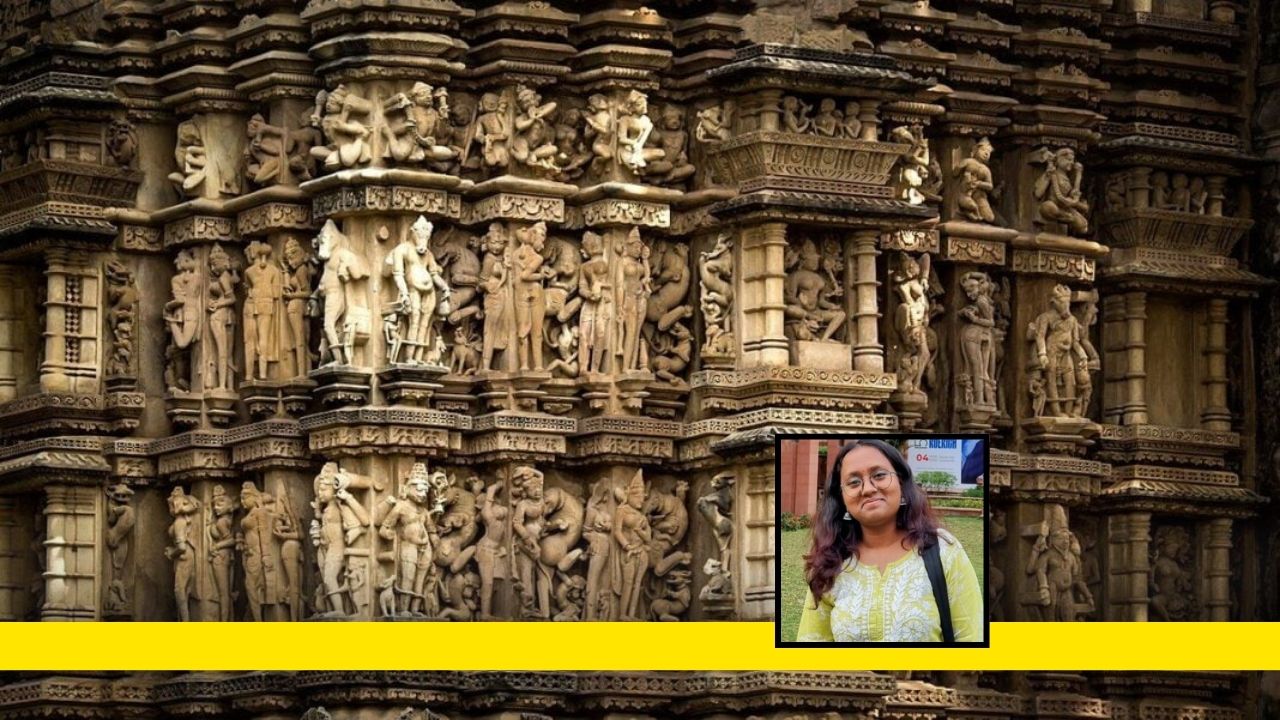
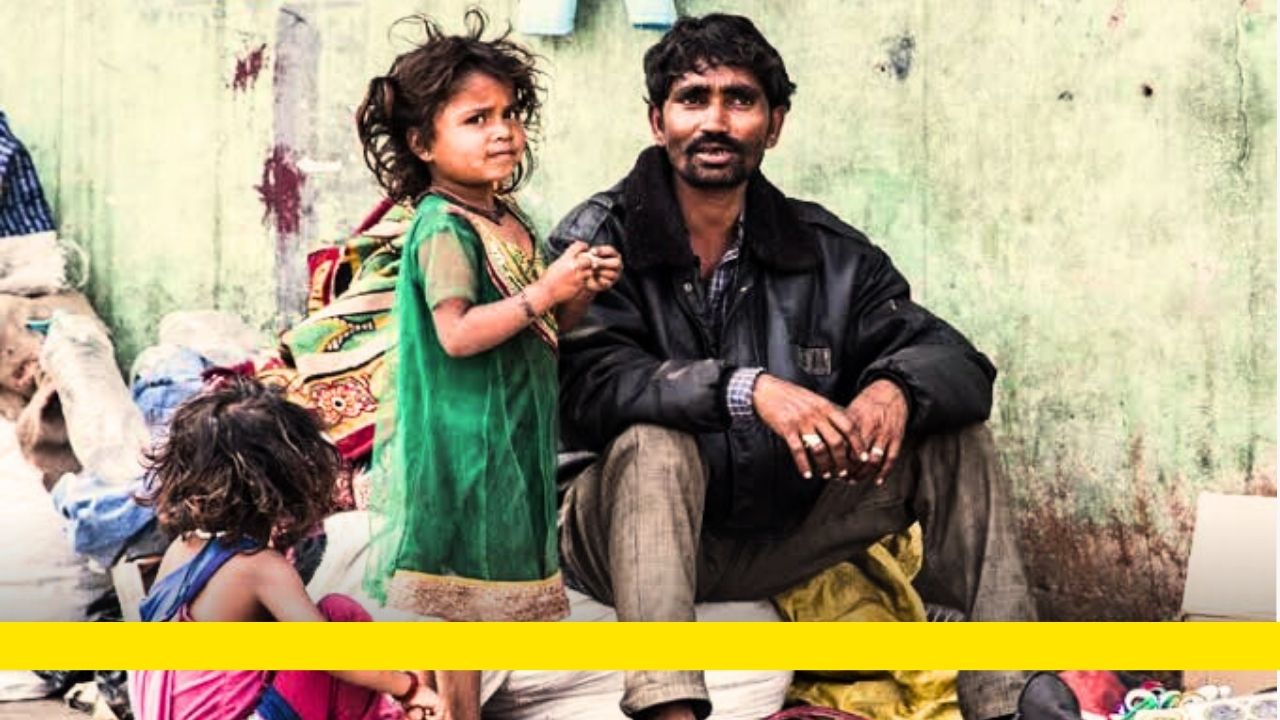
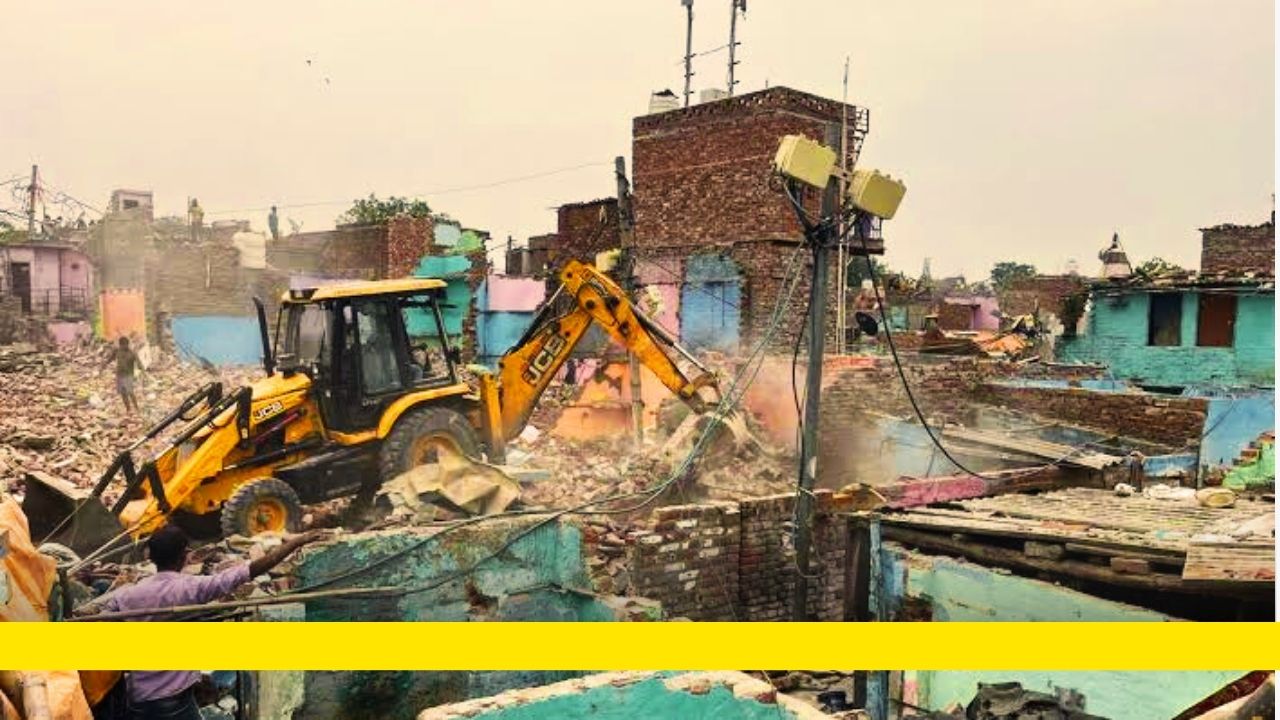


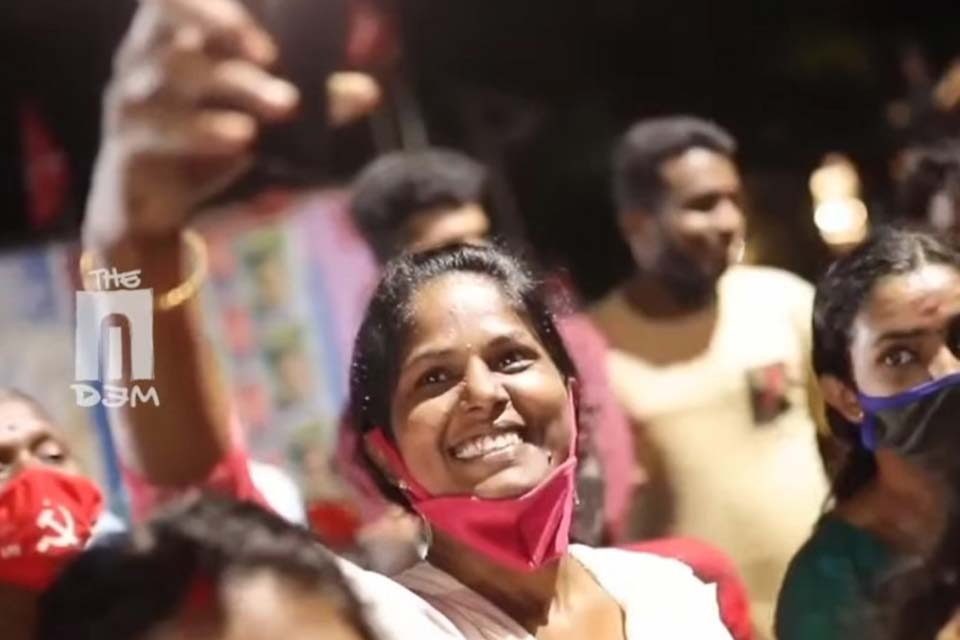

Enjoyed reading this, Revati. I hope she stands a chance of winning!
Thanks Kalpana, she does stand a good chance. The rest is of course blowing in the wind.
Nicely written. Gripping narration.
Astonishing, amazing and awesome that in these turbulent times when everything connected with Islam & Muslims is viewed as a political handicap a young girl has succeeded in carving out a place for her own. Even Rahul Gandhi consciously avoids using the ‘M’ word. And even in much acclaimed progressive manifesto of the Congress one could not find ‘M’ word. Amidst such challenging scenario the success story of Iqra conveys a lot.
It is doubly pleasing that she is doing this in Uttarpradesh!
Thank you Azeez. Iqra is indeed remarkable